- Where We Work
- Africa
- African Union
- Power Africa
- Trade and Investment
- Angola
- Benin
- Botswana
- Burkina Faso
- Burundi
- Cameroon
- Central Africa Regional
- Central African Republic
- Chad
- Côte d'Ivoire
- Democratic Republic of the Congo
- Djibouti
- East Africa Regional
- Eswatini
- Ethiopia
- Ghana
- Guinea
- Kenya
- Lesotho
- Liberia
- Madagascar
- Malawi
- Mali
- Mauritania
- Mozambique
- Namibia
- Niger
- Nigeria
- Republic of the Congo
- Rwanda
- Sahel Regional
- Senegal
- Sierra Leone
- Somalia
- South Africa
- South Sudan
- Southern Africa Regional
- Sudan
- Tanzania
- The Gambia
- Uganda
- West Africa Regional
- Zambia
- Zimbabwe
- Asia
- Europe and Eurasia
- Latin America and the Caribbean
- Middle East
- Mission Directory
Speeches Shim
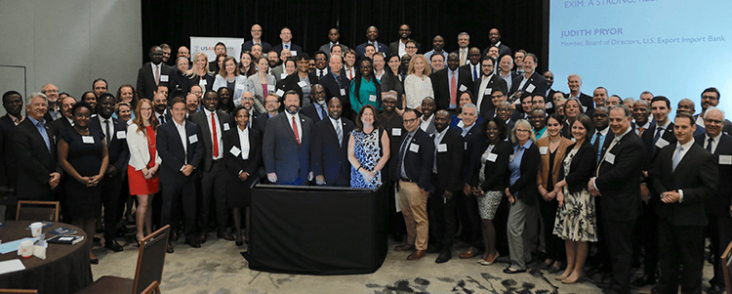
 |
 |
 |
U.S. Agency for International Development (USAID)
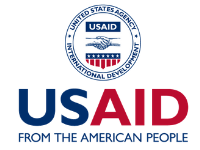
— provides targeted technical assistance, grants, program support, and risk mitigation to advance specific development objectives
Key Capabilities:
- Posts Transaction Advisors in Power Africa countries to assist in advancing agreements between public and private sector partners
- Contributes to multi-donor funds such as the African Union’s Geothermal Risk Mitigation Facility, the African Legal Support Facility, and the African Development Bank’s Sustainable Energy Fund for Africa
- Helps governments adopt and implement policy, regulatory, and other reforms necessary to attract private sector engagement in the energy and power sectors
- Provides technical assistance to support Mission-led energy initiatives in Power Africa countries
Millennium Challenge Corporation (MCC)
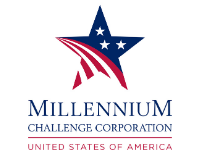
— partners with developing countries who are committed to good governance, economic freedom, and investing in their citizens, to reduce poverty through economic growth
Key Capabilities:
- Increases access to electricity by investing up to $1 billion in African power systems through MCC grants
- Motivates partner countries to implement regulatory, governance, and utility reforms to improve the commercial viability of the power sector
- Provides technical assistance and management support for ministries, regulators and utilities
- Utilizes country-led solutions and implementation to provide financial support for energy infrastructure projects
U.S. International Development Finance Corporation (DFC)
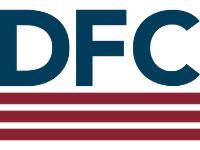
— provides financing and insurance for private companies developing projects in developing markets
Key Capabilities:
- Provides direct equity financing and support for investment funds
- Provides direct loans and guarantees of up to $1 billion for tenors as long as 25 years, with specific programs targeting small and medium U.S. businesses
- Provides political risk insurance coverage of up to $1 billion against losses due to currency inconvertibility, government interference, and political violence including terrorism; also offers reinsurance to increase underwriting capacity
- Provides feasibility studies and technical assistance to accelerate project identification and preparation, and to better attract and support private investment in development outcomes
Export-Import Bank of the United States (EX-IM)
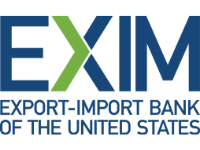
— assists in the financing of U.S. goods and services to international markets
Key Capabilities:
- Issues fixed-rate financing to credit worthy international buyers in both the private and public sector
- Provides loan guarantees for financiers of foreign buyer’s in the purchase of U.S. capital equipment and services
- Support export credit Insurance to cover risk of buyer nonpayment for commercial risks (e.g., bankruptcy) and certain political risks (e.g., war or the inconvertibility of currency) U.S. Government Support Capabilities Project Development, Project Structuring, Project Financing, Post-Financing Support, and Policy Reform
U.S. Trade and Development Agency (USTDA)
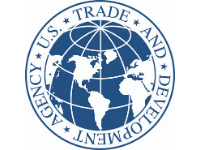
— provides grant-based project planning assistance to mobilize capital for infrastructure in developing and middle-income countries
Key Capabilities:
- Supports feasibility studies and pilot projects to provide the required comprehensive analysis for major infrastructure projects to achieve successful financing and implementation
- Offers gap funding to support late-stage development needs, such as front-end engineering design, lender’s due diligence, and other components to move an infrastructure project to financial close
- Provides technical assistance to support legal and regulatory reform related to commercial activities and infrastructure development, the establishment of industry standards, and other market-opening activities
- Hosts reverse trade missions to the U.S. for overseas project sponsors to observe the design, manufacturing, demonstration, and operation of American products and services which can help the officials achieve their development goals
- Organizes sector and region-specific events to connect U.S. firms with foreign buyers, highlight upcoming infrastructure projects overseas, and showcase U.S. goods and services
U.S. Department of State (DOS)
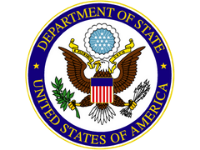
— advances the political and economic dialogue on transformational energy policies through diplomacy, trade & investment promotion services, technical assistance, partnerships and bilateral programs
Key Capabilities:
- Conducts diplomacy at all levels with host governments to advance legal, regulatory, and institutional reforms that contribute to robust enabling environments to encourage private sector trade and investment
- Encourages good governance and revenue management, which leads to economic growth and attracts private sector investment
- Provides technical assistance to support regulatory and legal reform through the Energy Governance and Capacity Initiative (ECGI) and promotes reliable and affordable energy supply through power sector reform and development through the Power Sector Program (PSP)
- Increases electricity access in both urban and rural areas through on-and off-grid connections by promoting advances to the enabling environment through engagement with governments and utilities
- Utilizes public diplomacy resources to highlight and share U.S. expertise through in-person and virtual visits of Africans to the United States and U.S. experts to Africa to promote dialogue and sharing of best practices
U.S. Department of Commerce (Commerce)
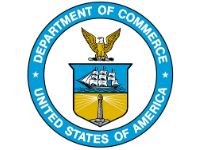
— facilitates global trade and strengthens the international economic position of the United States of America
Key Capabilities:
- Assists U.S. companies in researching and selecting overseas markets for export of goods and services by identifying market barriers and expanding the availability of trade financing
- Provides trade data and methodology to expand international sales and marketing
- Identifies of potential foreign agents, distributors, and buyers for U.S. companies
- Commercial Law Development Program - Improves the legal environment for doing business in Sub-Saharan Africa by serving as a resource for federal agencies, US businesses, foreign governments and foreign businesses on complex issues such as Power Purchase Agreements (PPAs), project finance agreements, and more
- Advocacy Center - Coordinates U.S. government interagency advocacy efforts on behalf of U.S. exporters bidding on public-sector contracts with overseas governments and government agencies
U.S. Department of Treasury (Treasury)
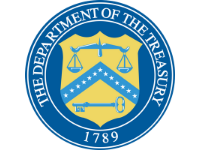
— works bilaterally and through multilateral institutions to promote policies and institutional capacity that lay the foundations for economic growth and financial sustainability
Key Capabilities:
- Provides technical assistance to finance ministries and central banks to strengthen their ability to manage public finances and safeguard their financial sectors, including in the areas of budget, revenue, debt management, infrastructure finance, and financial services
- Leads engagement with the World Bank, African Development Bank, and International Monetary Fund which support countries to promote inclusive growth, poverty reduction, sound economic management, debt sustainability, and good governance
U.S. Department of Energy (DOE)
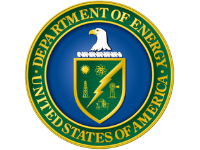
— provides technical expertise to U.S. agencies and African governments to improve energy systems and help better meet emerging needs
Key Capabilities:
- Provides technical expertise supporting the development and modernization of energy systems in developing countries, through both bilateral cooperation and multilateral initiatives
- Provides expertise in policy planning, energy market analysis, energy system modeling, and technical analysis to incubate enabling environments that encourage U.S. private sector investment
- Promotes development and application of innovative energy technologies in Africa through collaboration with its National Laboratory system, and helps move these technologies to commercialization
- Undertakes assistance for regulatory reform by fostering relationships between appropriate focus country agencies and U.S. national and state regulators
U.S. African Development Foundation (USADF)
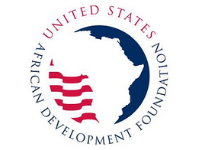
— funds African-owned and managed enterprises, cooperatives, and community-based organizations to build capacity and expand economic activities
Key Capabilities:
- Awards grants for seed funding, capacity building, and expansion of up to $250,000, to catalyze groups for future growth by funding technical, managerial, and organizational improvements
- Provides due diligence research, project design and business planning, and monitoring and evaluation oversight
- Through the Off-Grid Energy Challenge, in partnership with GE Africa, awards grants of up to $150,000 to African-owned and managed organizations for off-grid solutions that deploy renewable resources and stimulate economic activity through productive uses of energy, including in vulnerable and displaced communities like refugee settlements
U.S. Department of Agriculture (USDA)
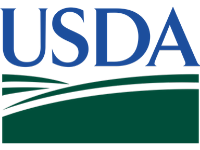
— promotes sound policies and provides technical assistance to support national and international agriculture, energy, environmental and trade issues
Key Capabilities:
- Provides expertise in policy, regulatory and institutional capacity building, utility infrastructure, renewable energy, and financing issues
- Provides capabilities in establishing community and business association ownership models, and bid solicitation and proposal evaluation processes and standards
- Designs debt and equity financing mechanisms and develops performance based indicators
U.S. Army Corps of Engineers (Army Corps)
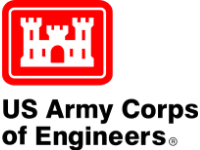
— provides technical assistance in the planning, design, acquisition and construction oversight of infrastructure, including hydropower
Key Capabilities:
- Conducts assessments, reviews, capacity building and training for host country governments, for the development and management of infrastructure including hydropower

Comment
Make a general inquiry or suggest an improvement.